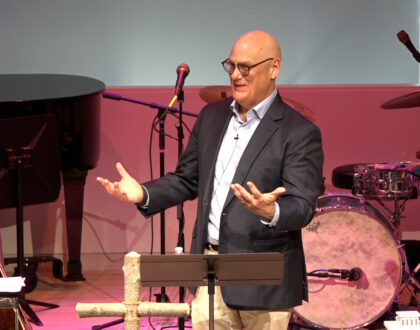Leadership in the Church

M. Scott Peck begins his famous book The Road Less Travelled with the following words: “Life is difficult. This is a great truth, one of the greatest truths. Once we truly see this truth, we can transcend it.” So if life is difficult, then we can safely say that leadership is very difficult. Leadership is not for the faint of heart. It takes passion, conviction, nerve, thick skin, and resilience.
Tony Jarvis says this about leadership in his classic book With Love and Prayers: “Leaders are caught in a catch-22. If a leader is strong, undeterred by projection, blame, and calumny, he is then labeled as arrogant, authoritarian, dictatorial. If he sets aside his initiatives, goes with the way the wind is blowing, if he backs down at all, he or she is immediately labeled as ‘weak’ and ‘a waffler’.”
Many in our culture want to be leaders but aren’t willing to pay the price. Many want the recognition and prestige without the responsibility, the glory without the hard work. Jarvis adds that leadership is not an end unto itself, it takes courage, always involves being criticized, and is costly.
One of the best books I have ever read on leadership is Edwin Friedman’s Failure of Nerve where he argues that leaders fail when they lose heart and give in to anxiety. Leaders fail when they lose nerve, and it happens often. Anybody who wants to lead must pay attention to their spiritual tank. If the tank is empty or close to empty, leadership will be very difficult if not impossible. Those who want to be spiritual leaders in life need to have these six core traits.
The first is Christ-centered character – it’s who you are that matters. Character is formed over time, and the foundation is laid early in life. We all fall short at times but character is built through the trials and tribulations of life. Patterns of behavior matter.
The second trait is courage. Nobody can lead anything without having the courage to do so. Why? Leaders are criticized and projected upon all the time. Courage combined with resilience will make all the difference.
The third trait is maintaining a positive attitude. Nobody wants to follow a cynic who is always negative and pessimistic. True leaders always inspire hope and focus on the good.
The fourth trait is to be teachable. Life is a classroom and we must never stop learning and growing. Once you stop learning, you can no longer lead. This involves being able to listen empathetically to the concerns of others.
The fifth trait of a spiritual leader is that they are “relationship-forming.” Effective leaders surround themselves with other leaders and form relationships with those they lead. Trust is built in the process as the currency of relationships. This is true in the church, business, education, politics, and any other field. The healthiest spiritual leaders form and maintain strong relationships.
The sixth and final trait is humility. Leaders must work to overcome pride and maintain a deep sense of humility. Being wrong and apologizing are always signs of strength.
Please pray for these leaders who have agreed to serve at Woodmont, as well as for those who are currently serving our church.
Recommended Posts

Authenticity in a Social Media World
April 16, 2024

“Leveraging Our Love” – Jay Hutchens – April 14, 2024
April 14, 2024

Living with Gratitude & Generosity
April 11, 2024

